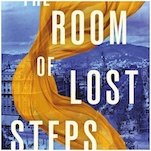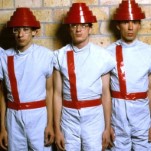The Curmudgeon: Country’s New Rule-Breaking Women
Can a skinny, 24-year-old girl from Texas with three albums nobody heard and a seventh-place finish on Nashville Star save country music from itself? Quite possibly.
When Kacey Musgraves’ single, “Merry Go ‘Round,” sailed into the Top 15 on Billboard’s country singles chart at the end of last year, it felt like a breakthrough. Not because it was a good song, for a substantial minority of the songs on country radio are well crafted and heartfelt, even if they break no new ground. Nor did it stand out because it sounded so original; a substantial minority of Americana-radio songs sound distinctively fresh, even if they never get on commercial radio. No, “Merry Go ‘Round” sounded like a leap forward, because Musgraves hit the trifecta: a well-made song with a totally fresh perspective that still connected with a mainstream country audience.
That combination is crucial, because popular music means something special when it really is popular without pandering. And country music means something more when it’s welcomed by country people—a song about farms, small towns and ex-urbs vibrates a little more when it’s embraced by the people it’s talking about.
As a pure aesthetic experience, Kevin Gordon’s song about small-town Louisiana, “Colfax/Step in Time,” was the best song of 2012, but as a social experience it didn’t mean as much as “Merry Go ‘Round,” because “Colfax” was shared by many fewer people—and even then by people unlike the characters in the song. But when Musgraves sang, “Mama’s hooked on Mary Kay. / Brother’s hooked on Mary Jane. / Daddy’s hooked on Mary two doors down. / Mary, Mary, quite contrary, / We get bored, so, we get married,” small-town residents just like her characters recognized themselves and bought the record.
It was only two months ago that “Merry Go ‘Round” finally appeared on an album, Same Trailer Different Park, a title that’s not only a line from the hit single but also a clever pun on Merle Haggard’s album, Same Train, A Different Time. It’s a title that captures the universality of these songs—what happens in Musgraves’ trailer home is happening in trailer homes all over this nation. And that shared experience was confirmed when the album went to #1 on the country charts and #2 on the pop charts.
Just as importantly, the songs live up to the promise of the single; they’re written with the smart, barbed understatement of a John Prine and delivered with the nasal twang and conversational ease of a Loretta Lynn. The new single, “Blowin’ Smoke,” is a dead-on summary of the chatter between a bunch of waitresses taking a cigarette break “between the lunch and dinner rush” in the alley behind a restaurant. Musgraves not only gets the blue-collar language just right but also the wistful dreams and self-deception. The bar-band Southern-rock behind her voice seems to be coming from the “cocktail lounge” attached to the restaurant.
-

-

-

-

-

-

-

-

-

-

-

-

-

-

-

-

-

-

-

-

-

-

-

-

-

-

-

-

-

-

-

-

-

-

-

-

-

-

-

-








































